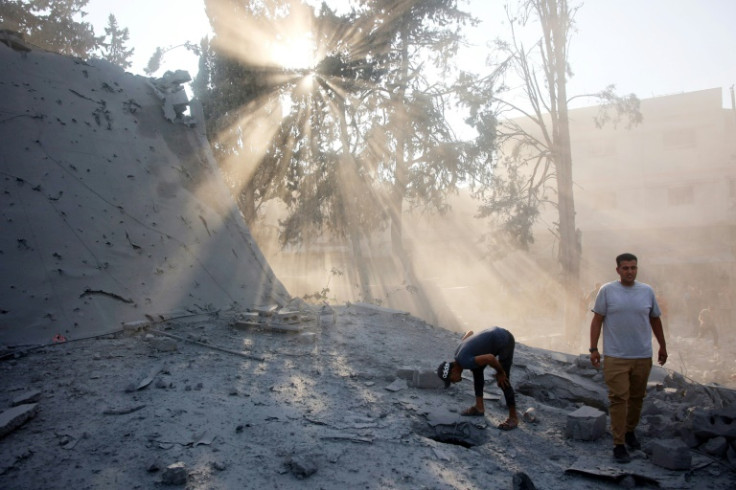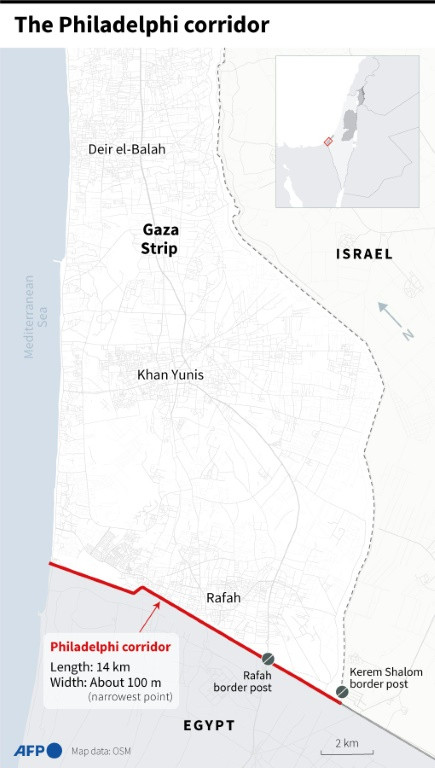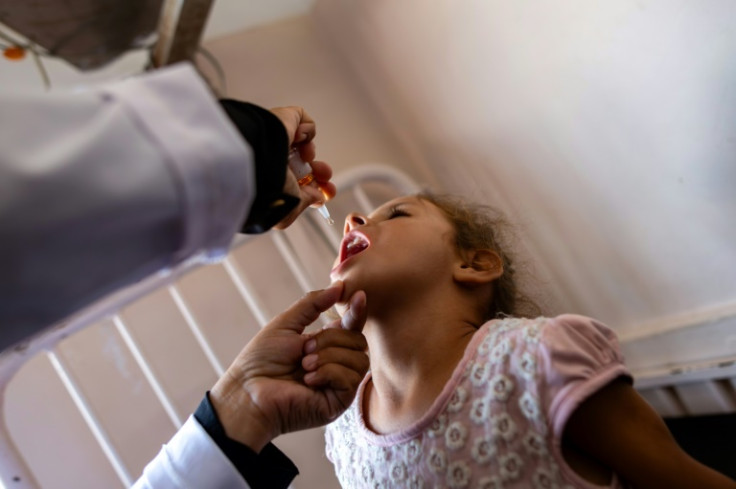
Concerns grew Tuesday over the chances of securing a Gaza truce, a day after Israeli Prime Minister Benjamin Netanyahu rejected making any "concessions" in stalled talks towards a hostage release deal.
Netanyahu told a televised press conference at the end of a day of nationwide protests that he would "not give in to pressure" to renege on demands in indirect negotiations with Hamas to end the war, now nearing its 12th month.
Analyst Mairav Zonszein of the International Crisis Group said Netanyahu's remarks showed "he won't stop the war... until Hamas surrenders, and he basically announced there won't be a hostage deal".
Gripped by grief and fury after six dead hostages were recovered from Gaza, Israelis took to the streets on Sunday and Monday to ramp up pressure on their government to secure the release of the remaining captives.
The military said the six were all captured alive during Hamas's October 7 attack on southern Israel that triggered the war, and shot dead by the captors shortly before troops had found them.
"These murderers executed six of our hostage," said Netanyahu, who has increasingly faced accusations from critics in Israel as well as Hamas officials and analysts of prolonging the war for political gain.
US President Joe Biden, who on Monday met negotiators working alongside Qatar and Egypt to try to secure a truce deal, replied "no" when asked by reporters in Washington if he thought Netanyahu was doing enough to secure a hostage deal.
The veteran Israeli leader, whose ruling coalition relies on the support of far-right ministers opposed to a truce, insisted that "we say yes" while it is Hamas that has refused to make concessions.
Israeli left-leaning daily Haaretz said Netanyahu was "masking his motives with security concerns" but said he was primarily concerned with his own political survival.
"His coalition... might unravel if a Gaza deal goes through," it said.
Netanyahu again called for "maximum pressure on Hamas" and stated that "the achievement of the war's objectives" requires control of the Philadelphi Corridor along the Gaza-Egypt border.
Hamas has long demanded a complete Israeli withdrawal from the Gaza Strip, and Egyptian officials have voiced their objection to Israeli military presence on the border.
Netanyahu "wants to occupy Gaza on some level indefinitely" and was now "just saying it more openly", Zonszein told AFP.
Despite "huge opposition" among Israelis who support a Gaza deal, "there's also nobody in the political realm that's able to challenge him," said the analyst.
Israel occupied the Gaza Strip in 1967 and maintained troops and settlers there until 2005, when it withdrew but imposed a crippling blockade and, since the start of the current war, a siege.
Adding to the pressure on Israel, Britain on Monday said it would suspend some arms exports, citing a "clear risk" they could be used in a serious breach of international humanitarian law.
Fighting meanwhile raged on in Gaza, where civil defence rescuers reported two killed, including a child, in an Israeli strike that hit a displacement camp near Khan Yunis on Tuesday.
The civil defence agency as well as witnesses and AFP correspondents reported more air strikes and artillery shelling across southern and central Gaza.
Israel's military campaign against Hamas has so far killed at least 40,786 people in Gaza, according to the Hamas-run territory's health ministry. The UN rights office says most of the dead are women and children.
The October 7 attack on Israel resulted in the deaths of 1,205 people, mostly civilians and including hostages killed in captivity, according to an AFP tally based on Israeli official figures.
Of 251 hostages seized by Palestinian militants during the attack, 97 remain in Gaza including 33 the Israeli military says are dead. Scores were released during a one-week truce in November -- the only one so far.
Abu Obeida, spokesman for Hamas's armed wing the Ezzedine Al-Qassam Brigades, said remaining hostages would return "inside coffins" if Israel maintains its military pressure on Gaza.
After the first confirmed polio case in 25 years, a vaccination drive got underway Sunday with localised "humanitarian pauses" to the fighting.
Around 160,000 children received a first polio vaccine dose on Sunday and Monday in central Gaza, the territory's health ministry said.











